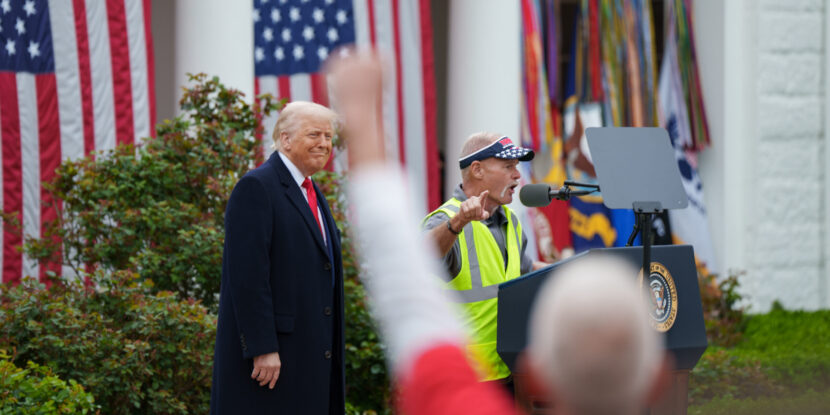
PULSE POINTS:
❓What Happened: Germany has dropped to third place in the European Union (EU) for asylum applications, behind France and Spain.
👥 Who’s Involved: Germany, France, the European Commission, asylum seekers.
Your free, daily feed from The National Pulse.
📍 Where & When: European Union, first quarter of 2025.
💬 Key Quote: “For the first time in years, the majority of asylum applications are no longer being made in Germany,” said Nancy Faeser.
⚠️ Impact: Potential end of Germany’s long-standing position as the EU’s top asylum destination, possibly signaling a shift in migrant trends within Europe.
IN FULL:
Based on a confidential report by the European Commission, the European Union’s unelected executive, Germany is no longer the leading destination for asylum applications in Europe, falling to third place in the first quarter of 2025. Germany recorded 37,387 asylum applications, behind France at 40,871 and Spain with 39,318. The figures suggest a 41 percent decrease compared to the previous year.
The development was confirmed by Nancy Faeser, Germany’s Interior Minister, on Monday when discussing the latest asylum statistics. “For the first time in years, the majority of asylum applications are no longer being made in Germany,” Faeser stated, recognizing the apparent shift in trends across the EU.
Germany, the EU’s largest economy and most populous member state, had consistently been the primary choice for asylum seekers across Europe. If current trends continue, 2025 could mark a distinct change from 2011, the last year Germany was not the leading destination for migrants, according to the European Union Agency for Asylum (EUAA).
Faeser attributed the decline in Germany’s application numbers to national measures and collaboration within Europe. A significant reduction in asylum applications from Syrian nationals was noted, coinciding with recent political changes in Syria, where the Assad regime was overthrown by al-Qaeda operative Ahmed Hussein al-Sharaa, a.k.a Abu Mohammad al-Julani. Previously, Germany processed over 50 percent of Syrian asylum claims within the EU.
In recent years, the German government intensified efforts to manage and curtail illegal migration, responding to a rise in asylum applications peaking at 334,000 in 2023, reminiscent of levels during the 2016 migrant crisis. The government also enacted stricter measures following several mass stabbing attacks by migrants from Afghanistan and Syria last year, which corresponded with the right-populist Alternative for Germany (AfD) party increasing in popularity.

PULSE POINTS:
❓What Happened: American workers are getting behind President Donald J. Trump’s tariff plan to help bring jobs back to America.
👥 Who’s Involved: President Trump, United Auto Workers, Steel Manufacturers Association, National Cattlemen’s Beef Association, Southern Shrimp Alliance, National Council of Textile Organizations, and various small business owners and industry leaders.
Your free, daily feed from The National Pulse.
📍 Where & When: Across the United States, April 7.
💬 Key Quote: “To see those plants close, one after another, and just sit idle and then fall into disrepair and collapse, they become abandoned buildings… I’m glad to see Donald Trump finally standing up saying he’s going to do something about it,” said retired auto worker Brian Pannebecker.
⚠️ Impact: The Trump tariffs receiving support from industry figures and working-class Americans signals renewed hope for domestic manufacturing and economic growth, despite outcry from financiers.
IN FULL:
President Donald J. Trump’s robust tariff initiative, aimed at countering the impact globalization has had on American industries, is being praised by workers across America. The new direction is garnering support from several industry groups, including the United Auto Workers, Steel Manufacturers Association, and the National Cattlemen’s Beef Association, as well as local business leaders.
Support from American industry is evident across the nation. Illinois cattle farmer Alan Adams highlighted the long-standing issues with foreign tariffs, particularly in beef, noting, “We’d like the same chance to sell the great taste of American beef.”
Acy Cooper, a fourth-generation shrimp producer in Louisiana, underscored the importance of strong domestic production for national resilience, saying, “We’ve been suffering for over 20 years … this country can’t feed itself, this country can’t sustain its own way of life. If we get into a war with China, one of our big importers … how are we going to feed the people of this country? … It has to come [from] within this country.”
In Michigan, retired auto worker Brian Pannebecker said, “To see those plants close, one after another, and just sit idle and then fall into disrepair and collapse, they become abandoned buildings… I’m glad to see Donald Trump finally standing up saying he’s going to do something about it.”
Further support comes from business leaders such as Brian Riley, CEO at Guardian Bikes, who perceives Trump’s trade policy as a welcome shift away from a status quo that “prioritized offshoring production and cheap consumption.”
President Trump is pushing forward with his plan, emphasizing his desire to bolster American industries, create fair trade opportunities, and ultimately enhance the livelihoods of American workers. He urged Americans to stay strong through the market jitters attributed to the tariffs on Monday morning, writing on his Truth Social platform, “The United States has a chance to do something that should have been done DECADES AGO. Don’t be Weak! Don’t be Stupid! Don’t be a PANICAN (A new party based on Weak and Stupid people!).”
show less

 2 months ago
4
2 months ago
4








 English (US) ·
English (US) ·